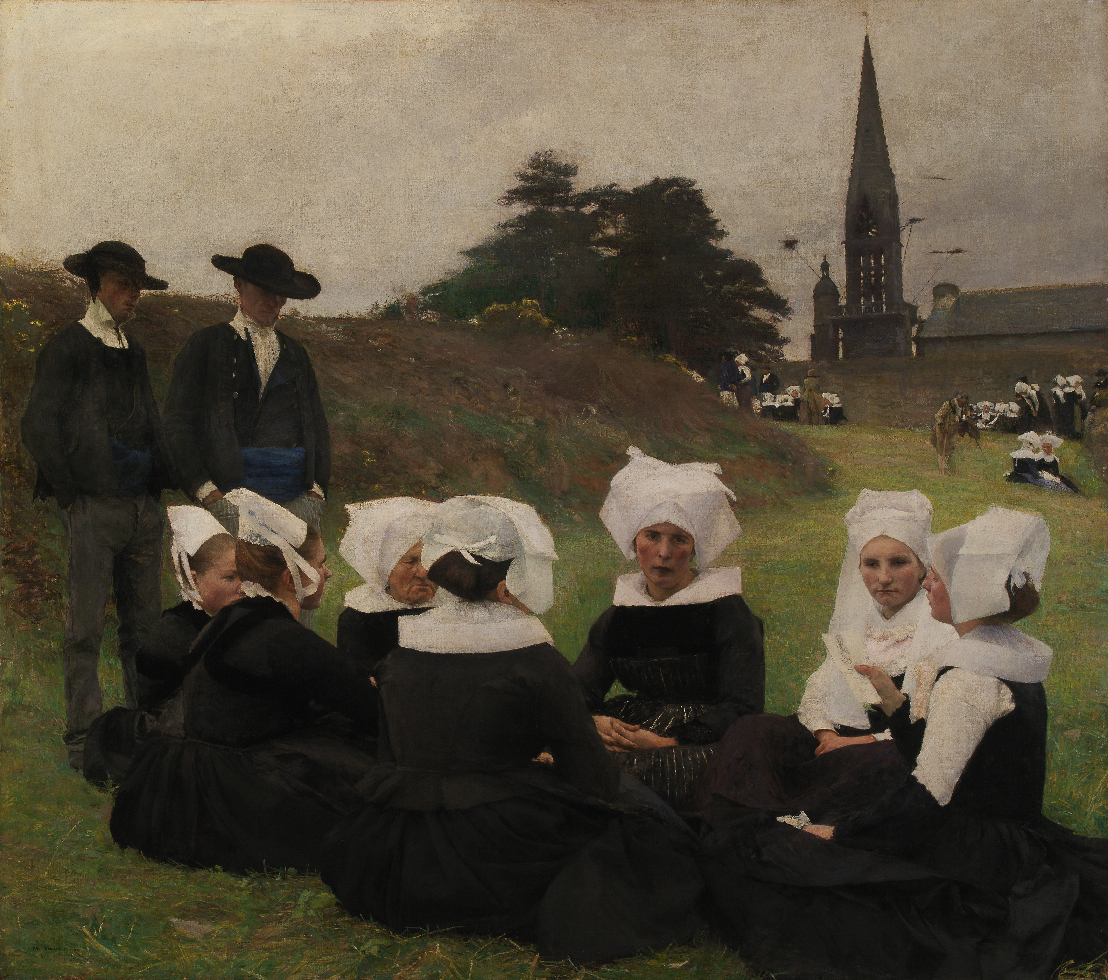
- France, 1887
- Oil on canvas
- Inv. 206
‘Les Bretonnes au Pardon’
In the late 1880s, naturalism reached the height of its popularity. The interest surrounding themes associated with the detailed depiction of the rural world explains the enormous success achieved by this objective composition at the 1889 Salon, where it received an award.
An ethnographic representation of pious customs, the painting evokes the ceremony of the Pardon, an indulgence granted by the Church to the faithful, and serves as a pretext for casting an analytical gaze at a world struggling to resist the changes of the end of the century. At the time, Brittany was the focus of particular attention from artists working in various movements and one of the most stimulating counterpoints to this painting was created by Gauguin.
Photographs taken by Dagnan-Bouveret in Rumengol and successive attempts at creating portraits of isolated models contributed to the end result of the painting. The final work, brought together by the painter in his studio, is therefore the result of a considerable amount of prior effort and a complex process of scenic arrangement.
Engel-Gros Collection, Paris. Acquired by Calouste Gulbenkian through Graat et Madoulé at the sale of the Engel-Gros Collection, Galerie Georges Petit, Paris, May/June 1921.
H. 125 cm; W. 141 cm
Weisberg 1982
Gabriel P. Weisberg, ‘Making it natural: Dagnan-Bouveret’s constructed composition for the salon of the 1880’s’, Scottish Art Review, 1982, vol. XV, no. 4, pp. 12–15.
Weisberg 1992
Gabriel P. Weisberg, Beyond Impressionism. The Naturalistic Impulse. New York: Harry N. Adams, 1992, pp. 28–33.
Sampaio 2009
Luísa Sampaio, Painting in the Calouste Gulbenkian Museum. Lisbon/Milan: Calouste Gulbenkian Museum/Skira, 2009, pp. 238–9, cat. 98.
Lisbon 2011
Calouste Gulbenkian Museum. Lisbon: Calouste Gulbenkian Museum, 2011, p. 191, cat. 170.